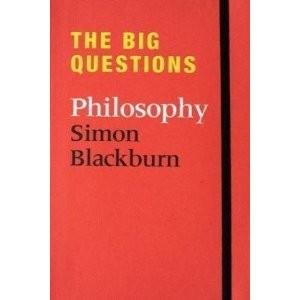

Blackburn does, however, subscribe to a species of free will, which he describes as "revised compatibilism." Finding out its definition is sufficient reason to consult Blackburn's book, written with exemplary concision and with conviction that philosophy needn't be an ethereal subject, alienated from practical concerns. One spoil sport was eighteenth-century philosopher David Hume, and Blackburn deploys futher disputations of Descartes' beliefs, as in mind-body dualism. Descartes gave yes answers to the question of whether the four spheres exist or not, through a logical process with which, after Blackburn has mapped it out, one can agree or not. Doubt, either initially or continually, infuses anyone who reflects on those spheres, and Blackburn illustrates ways to begin thinking about them by using the example Descartes. Its capital weapon is logic, but Blackburn shrewdly postpones discussing that until he explores such areas as the self, free will, the reality of sensory perception, and God.

Sensing that many people are daunted by the big questions in philosophy, university professor Blackburn supplies this primer.


 0 kommentar(er)
0 kommentar(er)
